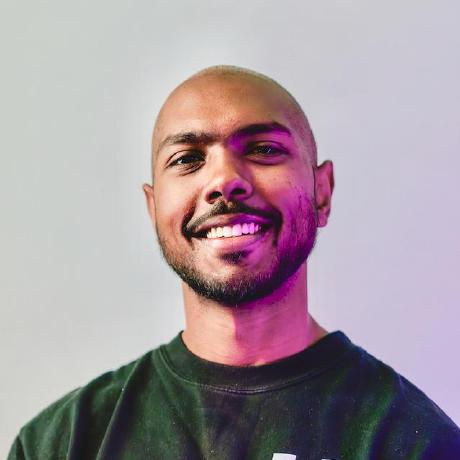This is a deeply personal post that will give you quite the insight into me as a person and my health journey so far. I'm literally laying it all out there. This may affect the way you see me, and might make some relationships awkward or something, but I don't really care: vulnerability and the positive results that follow are worth it. With that, let's kick this off.
Brené Brown told me to be vulnerable, so here's an attempt.
Prerequisites
Before we get started, I need to make a few things clear:
1. This Isn't Medical Advice
While I've spent most of my life in hospitals with doctors (more on that later), I'm not a doctor and the things I'm saying here are not to be considered medical advice. Heck, they're not supposed to be considered any advice—this is just personal experience. I hate unsolicited advice, so far be it from me to give it.
2. You're Probably Fine
We're our own worst critics, and can be pretty hard on ourselves. I'm here to tell you that even if you're feeling not-as-fit, or if you've got a few extra pounds, or whatever it may be—you're probably fine. Allow me to be the counter voice to your inner critic: you're probably fine.
Now, if there's real health impact where you're having trouble breathing while sleeping or are at higher risk of injury or death, then there's work to be done and I hope you're able to do it. I'd even be willing to help! Generally though, the difference between what our inner critic tells us and reality is pretty wild. Again, you're probably fine.
3. Comparison is a Trap
I'm going to be talking about my health and fitness journey, and I might talk about it in a way that could make some feel bad about themselves or like they're not doing enough or something. We naturally compare because we evolved to, but again—you're probably fine.
I believe the only one worth comparing myself with is my past self. If I compare myself to a beast like Nader Dabit, I'd probably consistently feel awful and unmotivated. But if I compare myself to my past self, I can see how far I've come and how much I've improved. That's a much more positive and motivating comparison.
4. Privilege is a Thing
I fully recognize that I was privileged enough to have the stars align in my favor. We'll talk more about that later in this post, but for now—I'm aware that not everybody has the opportunities and the privilege that I have today that makes the wins I'm about to share possible. This motivates me to work even harder to help others who don't have the same opportunities.
Similarly, there are others with way more privilege than me just by virtue of something as trivial as where they spawned on the planet. Inequality's an unfortunate thing. My strategy is to work hard to eliminate it, while also not resenting those more privileged than I am.
Whew, okay. Lots of disclaimers. Let's get into the meat of this thing. (Pun intended, but it'll probably only make sense after you've read further)
Context
Just kidding! We need to establish some context first. You see, my life is quite different from most because I have a rare genetic disease that affects about 1 in 20,000 people in the United States. Pretty sure that can be considered "rare". It's called hemophilia and is the literal worst. The TL;DR of it is that when I start bleeding (both internally and externally), I cannot stop: my body is unable to produce factor 8, a clotting factor responsible for stopping bleeding.
Of course, thankfully there's medicine for it. Of course, the world is a messed up and unequal place, so this medicine is ridiculously expensive. The drug I need (called Recombinant Factor VIII) costs about $2.53 per International Unit (IU). For optimal treatment, I need about 3000 IU, 3 times a week. That's about $22,770 a week. If I don't take this, my risk of death is and remains very high.
I have the worst kind of hemophilia: severe hemophilia A. That means, at any given time, unmedicated, my blood contains a concentration of <1% of clotting factor. A normal range of this is 50%-150%. Your body increases it to 150% when you have an injury, and maintains a lower level when you're sedentary. All of this is magically maintained by your healthy body. All of this is impossible for mine.
Born in 🇮🇳 India, Raised in 🇶🇦 Qatar
$22,770 a week? In India? Lol, you must be joking. Not only is the median income of India like $2,500 US, but I was also born into not a rich family. What's the alternative? You either die, or you hope for "the cheap stuff". My grandpa also had my disease (it's genetic). He lived his whole life in India. He took the cheap stuff, which gave him AIDS, which he ended up dying from (wtf, right?!).
Yeah, so India's a no-go. At about age 4, my dad miraculously got a job that moved us to Qatar. After a near-death experience (maybe a blog post for another time), we learned that the treatment at the time in Qatar—only in case of emergencies—was free for all, even expats.
This was an incredible thing and a total game changer. My life was saved, but just in case of emergencies. This led to me going about my life as usual, but then having to go to the emergency hospital (ER) every time I did some basic physical activity, like carrying a backpack, opening a door, or walking.
You see, human beings bleed internally all the time. Like literally all the time. When you walk up some stairs, tiny blood vessels near your knees rupture and start trickling blood into your knee cavity. This stops in a matter of seconds for you though, and you never even notice.
For me, walking to a grocery store would present a very real possibility of being bedridden the next day, because my knee would eventually fill up with blood such that the blood would pull the ball away from the socket in the joint and it would be in a pseudo-dislocated position which was quite painful, which required emergency medication. From walking. Yeah. Similar things happened with other joints, like elbows (from opening heavy doors) and ankles (also from walking).
With this, 18 years of my life between the ages of 4 and 22 were lived on a pendulum:
- Go to school on Monday.
- Bleed internally from some random action for hours.
- Lose a lot of blood and be in a lot of pain by Monday evening.
- Go to the emergency hospital on Tuesday.
- Argue with doctors and clarify that yes, I'm here again not because I'm a junkie but because I bleed a lot.
- Hematology specialists get it, emergency doctors don't. This was a constant struggle.
- Get treated.
- Spend the rest of the week recovering.
Next Monday, repeat. Over and over again. For 18 years, after which I'd move to Germany for a better life (more about that later).
Being frustrated with this disgraceful existence I was born into as a young child, I would often question what it would have been like if I had never been born and often wished I wasn't. This was painful for those around me (and me), so food become a nice comfort. Now, do the math: since exercise would literally kill me and food was comfort, what do you think happened?
I was Overweight
I was a large child: weighing in around 80kg or 180lbs at age 13. On the few days I went to school, I was bullied pretty heavily both physically and verbally: people would hit/kick me, and I'd bruise and nearly die the next day. Of course, they didn't see me bleed internally and they didn't understand the gravity of it. I had to deal with it all the same. I bet there's a parallel here for people saying mean things on the internet because they're not exposed to the consequences and impact of their attacks. Anyway, my nickname was "fat mushroom" because I had a bowl haircut for a while, which made me look like a fat mushroom.
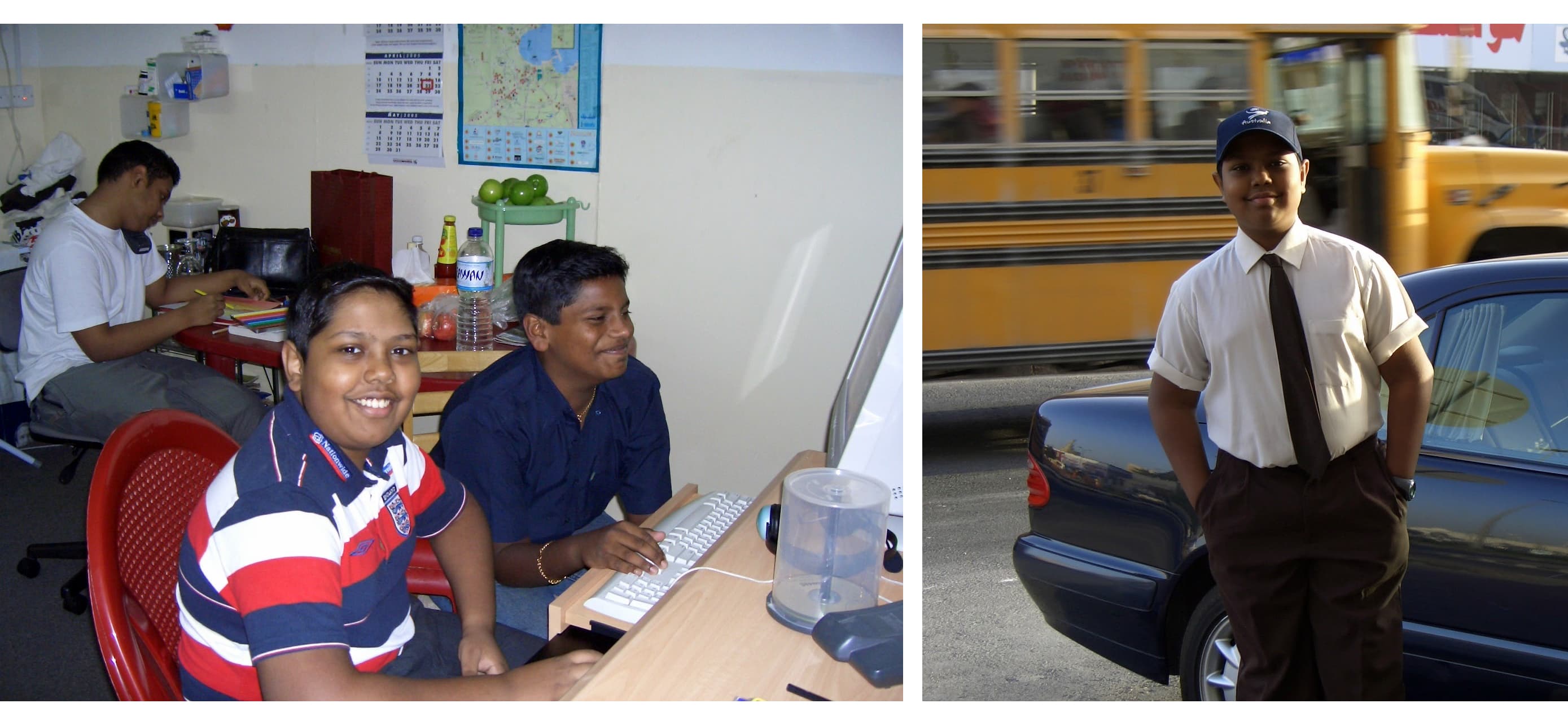
To make matters worse, when a body has dense subcutaneous adipose tissue (a lot of fat under the skin), it makes veins pretty hard to find. The only way to administer my clotting factor is through a vein (intraveinous/IV injections). This made treating me way harder, and I needed these injections to live.
Things started to change when my dad saw a doctor for his cholesterol. His doctor introduced him to a diet/lifestyle that would go on to shape this entire blog post for the better. While we'll get into the details later, I learned from my dad and adopted this diet/lifestyle, which led to me losing a lot of weight and feeling better about myself.
Little did I know—even then, I still wouldn't like what I saw in the mirror.
Skin and Bones
Following the advice of my dad's doctor, even without exercise, I had lost a lot of weight just by adjusting what I ate. Turns out abs are made in the kitchen. The problem is, I had literally none of them. I don't know what I was thinking or what I expected, but I should have done the math: I'm a teenager who has never exercised a day in his life because I couldn't. I should have known what I'd see under the fat.
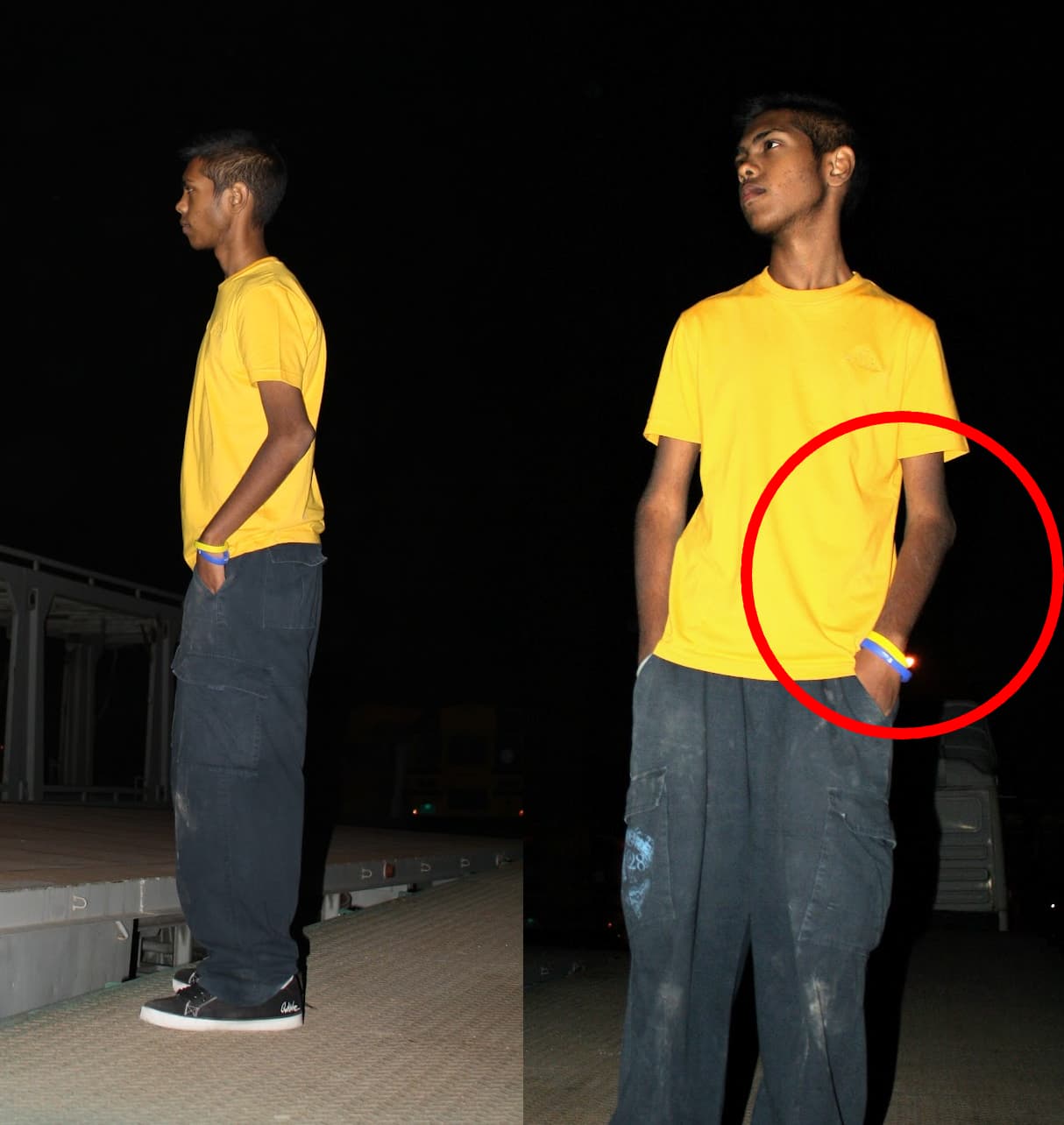
Unlike most people, I never had the ability/possibility to develop even the basal muscle most people develop by basically existing and going about their life: playing around as a toddler, going to kindergarten, school, etc. I had almost zero muscle mass. There was literally just skin and bone. When people saw me, they'd ask if I was sick because I looked sick. Dang.
I stayed like this for a while +/- a few pounds until, yet again, I was very uncertain about my future.
Moving to Germany
Qatar is no stranger to international controversy. While I'm not going to throw shade at them for what I'm about to say, it definitely inconvenienced me a great deal. At the time, I had spent most of my life in Qatar, benefitting from the free emergency healthcare, bouncing between the ER and my house for 18 years. This was about to stop.
The law in Qatar is such that when the head of a family turns 60, they have to take their family and go back to their country of origin. Qatar does not issue visas for people over 60 years old. To me, this is basically a death sentence since there's no way we can afford the expensive medication I require to stay alive in India.
After panicking a little bit, I decided to try and find a job in some white people country with a good healthcare system that would meet my needs (so, not the United States). I found a job in Germany as a Front-end Engineer (tbh after BS-ing my way through interviews because I needed the healthcare), and then I moved.

Pretty much immediately after moving, I found the hemophilia center in Berlin and met the doctor hastefully.
Hi, I just met you and this is crazy, but I have severe hemophilia so give me medicine maybe?
He had no idea who I was, I had no records. He asked for the brand of medicine I used to take in Qatar, I told him, and he sorted me out.
A Better Treatment
Instead of responding to emergency situations, they placed me on a preventative plan: I take 3000IU of clotting Factor VIII, 3x per week (every other day), and it stops out-of-control bleeding before it can start. This was amazing. They even trained me to inject my medicine into my own veins. Things are starting to look up.
I would later find out about the wonder of a functioning healthcare system: the entire population pays a fee towards insurance, even if they never go to the doctor. The insurance system collects all this money and redistributes it to people who go to the doctor a lot and who need expensive medicine: people like me. Thank you for paying your health insurance premiums.
With this treatment plan, I could finally live a little bit and travel freely, taking my medicine with me on flights and injecting myself on schedule, even in remote locations. This opened up literally the entire world to me. 😍
Enter Developer Relations (DevRel)
After living in Berlin for a couple of years, I had the opportunity to attend ZEIT Day Berlin where I hung out with Guillermo, Ives from CodeSandbox, Dan Abramov, and the beautiful community. It was a really great conference. I learned a lot, and also learned that tech conferences were a thing.
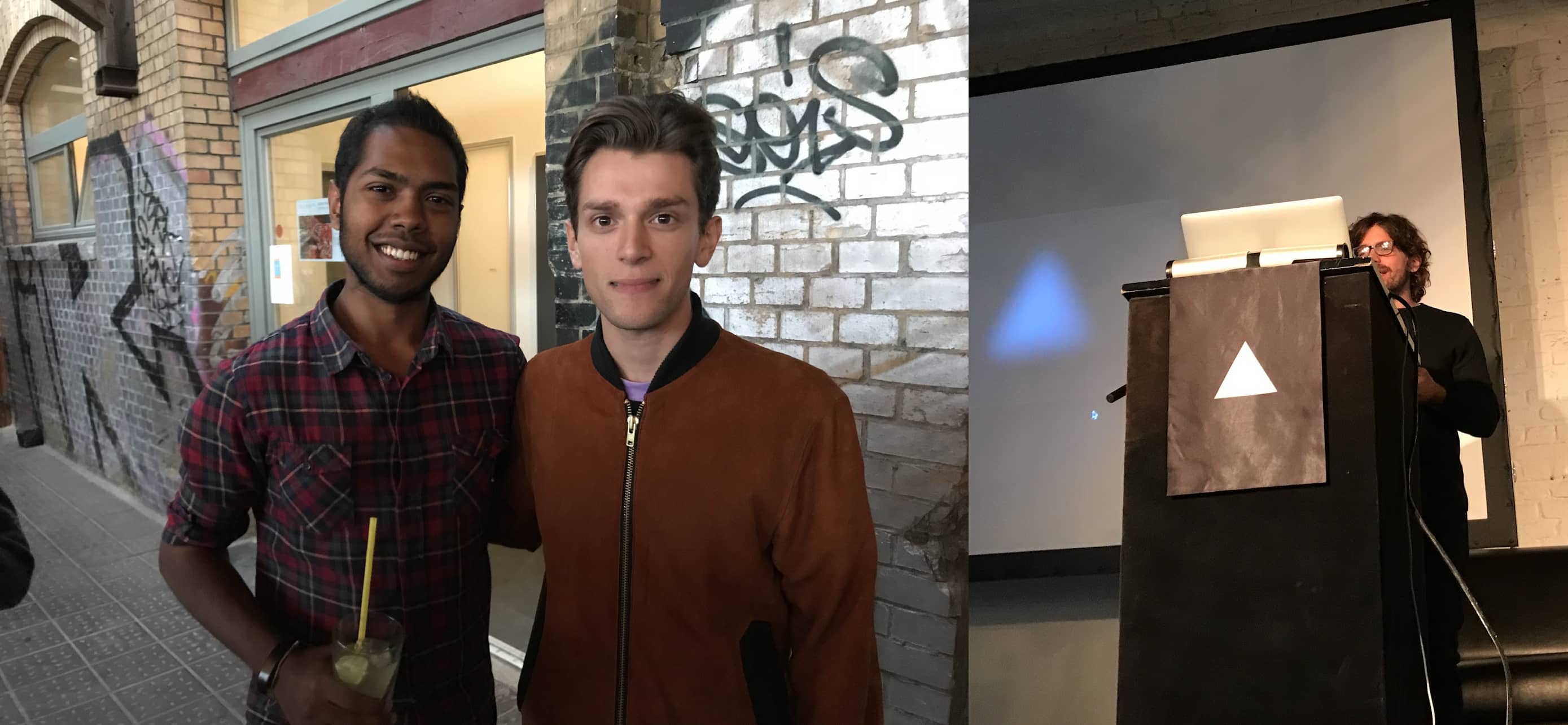
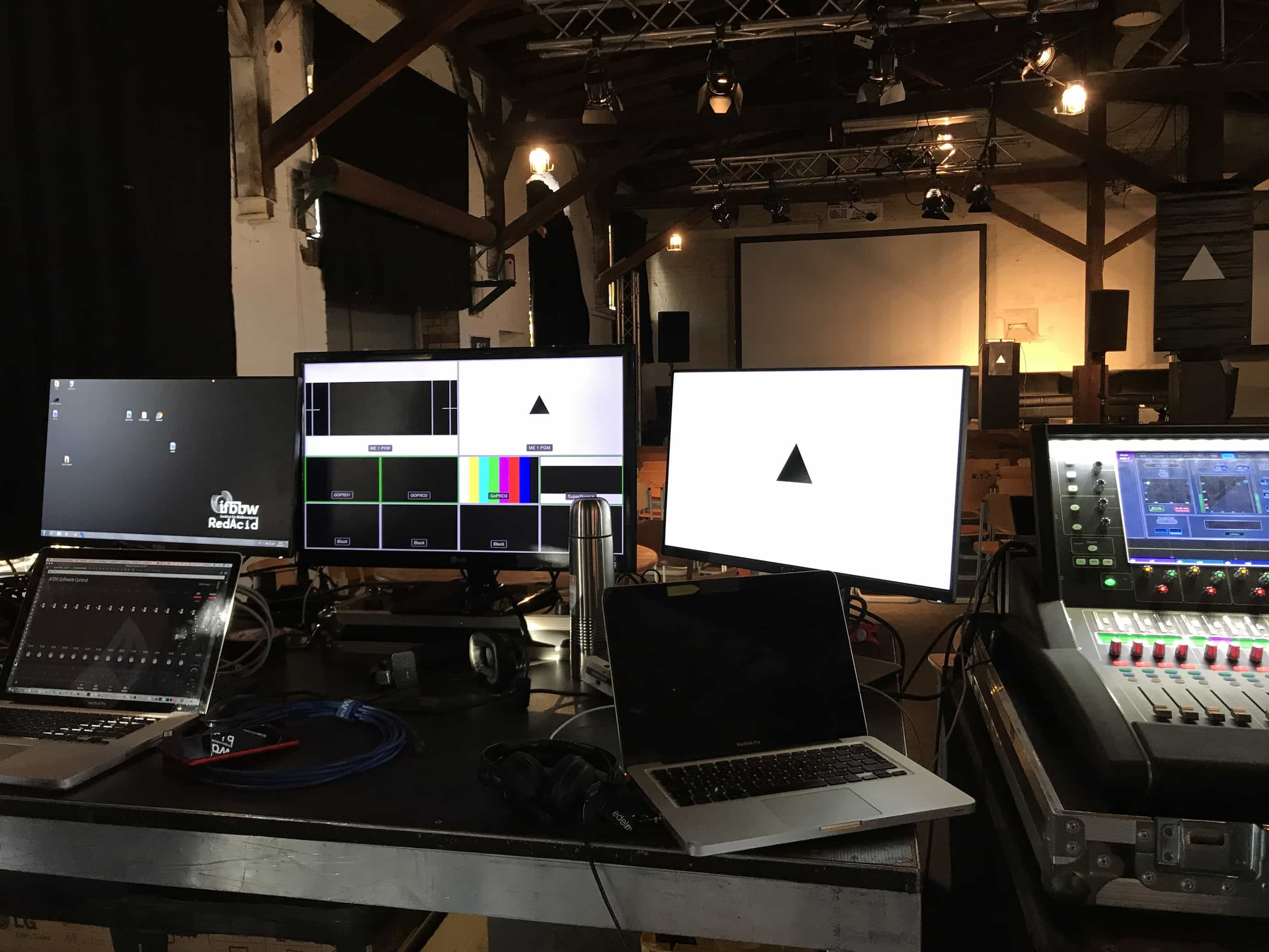
A few years later, I'd go on to speak at my first ever tech conference largely thanks to an anonymous call-for-papers (CFP) process and a lack of racial bias. This talk was pretty well received, and I'd continue speaking at conferences to this day while enjoying it and trying to bless the community as much as I am able.
DevRel: The Scary Parts
While a devrel role is an incredible type of job with a ton of opportunities and good vibes, things are seldom perfect. Writing docs, creating content, looking after the community are extremely rewarding. However, devrel can include attending a large number of events.
The events themselves are wonderful. When they accumulate, they can take a toll:
- You've got a pre-party, where you're eager to meet people and make friends, usually over a good amount of food and drink.
- You're probably tired from the flight and the day before.
- You've got the day of the event, which is sustained high social energy and constant excitement, being "on" the whole time.
- You've got the after-party, which is a lot of fun, but also a lot of drinking, eating, and socializing with KARAOKE YEAHHHHHHHHHH
What this leads to—if we're not careful—is a lifestyle of constant socializing, eating, and drinking with overly high energy and adrenaline. This is not a bad thing, but it can lead to a lot of stress on the body. Moreover, because of the regularly shifting environments, it can be hard to maintain a consistent fitness routine. Because of the delicious free food at events, it can be hard to maintain a consistent diet. Because of the intoxicating open bars, it can be hard to say no to alcohol. Did you know that alcohol can mess up your sleep? Because of a lack of sleep, it can be hard to maintain sanity.
I slowly started to unravel after traveling a lot for devrel and needed to find a solution. Thankfully, I did (keep reading).
As a disclaimer, I get that this can sound very "first world problems". I am extremely thankful for my privileged and wonderful position in devrel. There are a lot of great parts to it. We live in this culture though where we show off the highlights on Instagram and leave off the rest. I'd like to be able to be transparent about the trade-offs here.
A New Drug
In late 2020, I was invited to participate in the clinical trial of a newer and more experimental clotting agent: one that lasts longer than the standard at the time. This would mean that instead of my usual 3000IU 3x per week, I'd switch to 4000IU 1x per week. I'd go from injecting stuff into my veins 3x per week to once. Heck yeah! I accepted immediately.
After being on this drug for a while, we found out its impact on quality of life is major. Someone with my disease had a full hip replacement surgery and didn't need much medicine to fully recover. Previously, this would be out of the question because it would either be fatal, or require too much clotting factor. Wild!
This new drug made me feel like I experienced rebirth or evolution: my world got way bigger because I became way stronger and far more resilient. Keep in mind, in reality I'm just getting closer to people without hemophilia, probably like you. Anyway, with this "super-soldier serum", I figured it's time to give the gym more than I could have in the past.
Today(ish)'s Results
A little over a year later, these are the results. Keep in mind: I work in devrel and constantly travel so maintaining a consistent routine is hard if not impossible. Warning: these may be NSFW. I'm not nude, but I'm shirtless—which, depending on your convictions might be too much. Open it at your own risk.
Show me

So, I mean, it's not that significant—sure—but it's also not insignificant, right? Like if we remember the beginning of this post, we're just comparing ourselves to our past selves. Comparing myself to my past here, I'm pretty satisfied. Especially compared to my childhood self.
Comparing myself to Shaka Smith, who also has my disease, can leave me unsatisfied, but honestly it's an exercise in futility: I have no idea how severe his condition is, what healthcare/privilege he was born into, etc. I do know my circumstances and my past, so again, self-comparison works to my benefit here.
Okay, so I might be able to guess what you're thinking looking at the before/after above.
"How?"
This is a consequence of a literal lifelong struggle with myself: from being born predestined to be physically weak, to then being hated for being fat though it was out of my control, to getting overly skinny and still hating myself, to today. All of this comes from a lot of baggage, some that still exists to this day.
How: Losing Weight
I am able to lose weight at will consistently using things that my dad's doctor told him earlier and building on it: I eat keto, avoiding any carbohydrates I can. In the absence of carbohydrates, the body turns to fat for energy: both dietary fat (that is, fat that you eat from food), and stored fat (that is, fat on your body). We need energy for literally everything, even sleeping and chilling.
There's an adjustment period when eliminating rice, bread, pasta, and all carbs from my diet but after it, I don't even miss these things if I'm being honest.
I lose quite a bit of weight just doing keto on its own. The thing is, when I start seeing results, I get motivated to do more. Since keto consumes fat for energy, if I reduce dietary fat intake (thereby reducing even food intake), my body will still continue to use fat for energy: the fat on my body.
Because of this, I practice intermittent fasting (IF). I fast for 16-20 hours per day every day, and only eat between an 8-4 hour window. There's a common myth that when you're not eating you're not eating. The truth is that our bodies are always eating: either from the outside (food), or from the inside (autophagy). Managing this with a little discipline, even when traveling for work, has served me well.
Keto + IF also makes devrel work extremely convenient. I don't have to think about food as much, and when I do, it's easy: something without starch/sugar. Steak, cheese, whatever. Green, leafy vegetables are also keto, so I could literally just eat a bowl of nice fresh lettuce, broccoli, and other healthy goodies. You ever look at a menu and panic because you don't know what to get? The constraints I have help me decide on meals faster, which also improves my quality of life.
Fasting Considered Harmful
While fasting can have very good results, it can be dangerous if not managed well. When fasting, you can create deficiencies in multiple essential minerals, vitamins, and electrolytes. To combat this, I supplement these carefully while also consuming a bit of salt occasionally while fasting (a powerful electrolyte).
At very low levels of body fat, fasting can also be fatal: if there's no fat left to consume, your body will turn to consuming muscle tissue for energy in the absence of alternative energy sources like carbs. Your heart is a muscle. Do the math. It's not worth it. If you're thinking about it, please, please think critically and count the costs first, preferably consulting with an actual doctor.
Lifestyle, not Diet
It's important to make a distinction here: this is a lifestyle, not a diet. Diets, especially crash diets, rarely ever work. They don't work because the basic principle around them is deprivation, which eventually leads to binging and a bunch of other problems. The result? You often put the weight right back on after you lose it.
This is different: keto and intermittent fasting are things I enjoy. There are multiple benefits to keto in the science. Some that I experience are:
- Reduced brain fog, increased focus.
- Consistent energy levels, no sugar crashes.
- Fat-first metabolism.
- Improved insulin sensitivity.
This makes it a lifestyle I want to adopt, regardless of how it affects my physical appearance. I believe this is a huge key to achieving the results I enjoy, and I'm convinced a simple crash diet would fail me.
Veganism & Climate Impact
There's no denying it—industrial farming is destroying the planet, and keto involves eating animal fat. That said, I think it's quite important to do grass-fed organic responsibly sourced meat if able. Keto is also not only a lot of meat, and green leafy vegetables have their place.
Additional research proves that human beings need certain bioavailable essential amino acids (the building blocks of proteins, the building blocks of muscles) that our bodies cannot produce through our dietary intake that are only available through animal proteins. That said, I'll stop here before the vegan army comes for me.
A reminder, I'm not interested in giving anyone advice and am only sharing what works for me.
How: Growing Muscle
I've also grown a bit of muscle compared to earlier through consistent weight/resistance training. I've consumed literature on literature on literature from PubMed usually and have taken an extremely scientific approach to it. Exactly like the scientific method, the results are reproducible consistently.
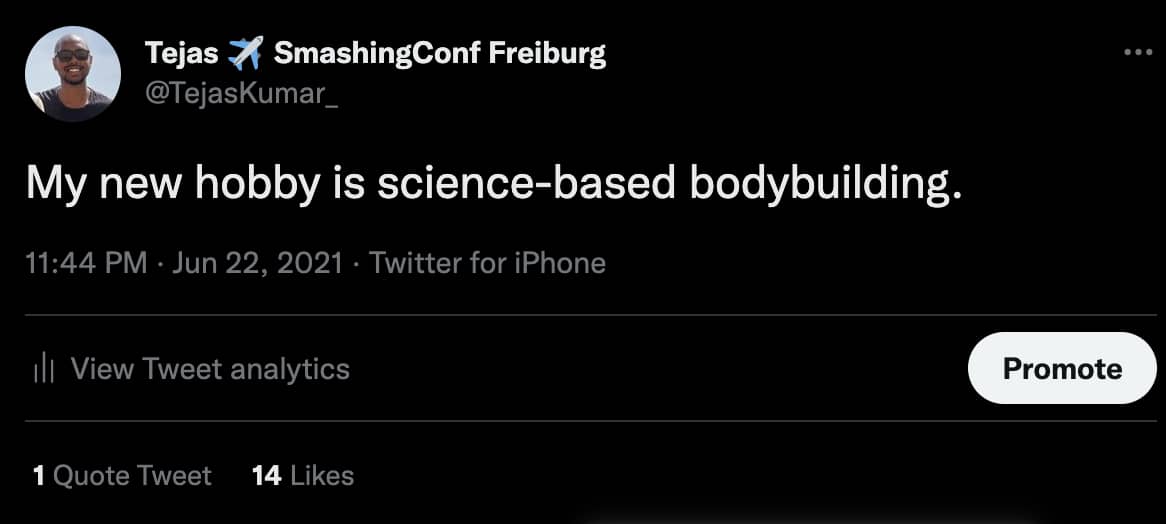
That's literally it: consistent weight training. This works even when doing devrel work because most hotels have gyms. No gym? I use resistance bands and work out in the room. Your muscles don't care if you use dumbbells or barbells or bands–they just need stimuli and stress.
What's even better is now that I'm lighter, calisthenics and body-weight exercises like pushups and pull-ups are more accessible and more fun. Weight loss before muscle gain has been helpful for me because I have a wider variety of exercises to choose from.
But wait—if I don't eat as much with intermittent fasting and keto, how do I grow muscle? From my experience, it would seem that being in the state of ketosis and consistently training is enough to sustain and grow muscle given an energy (caloric) surplus and adequate protein intake. Ketones do make things grow, so there may be something here. Take this with a grain of salt though, because this is a pretty weak experiment I've done on myself where n=1.
Self-Compassion and Bro Science
Early in my weight training days, I've heard a lot of things that confused me and didn't seem to make any sense:
- I bought into the "go hard or go home" philosophy, often leading to poor form and injury.
- I heard arbitrary rules like "you must do 4 sets of 10 reps" without anyone ever talking about how much weight and why.
- I heard that unless I was sore after every workout, workouts were ineffective.
Thankfully, the science has shown me that bro science is a bunch of bullshit, and the true gains come from knowing thyself and from being kind to your body. "Go hard or go home" leads to major problems in the science, including increased cortisol (the stress hormone) which can short-circuit muscle growth.
My science-based strength protocol is based largely on self-compassion: I leave my ego at the door when I enter the gym and do whatever my body feels comfortable doing. To speak science, I use a method called "RIR (Reps in Reserve) training" that I learned from this paper by Eric Helms and co. that is basically self-compassion-driven weight training. The TL;DR of it is that you lift as much as you comfortably can, until you can't. It's totally fine to stop just short of muscle failure, and you don't need to hit failure every time.
While it's hard to come up with a magic number for everyone since everyone's different, my weight training routines usually have 10-20 hard sets per muscle group per week of any number of reps I'm comfortable with: the sets just have to feel difficult. That's it.
I go by feel, and optimize for progressive overload: I try to do a little more each time, so that my body gets enough physical stress that it adapts and gets stronger. Concretely, I increase at least 1 of 3 fundamental variables to strength training over time. These variables are:
- Intensity: how heavy the weight is.
- Volume: how many times I lift it (reps/sets).
- Frequency: how often I work the muscle (2-3x per week).
Sometimes if I don't sleep enough or something, I regress. That's fine. It's just a day in an otherwise continuous flow of progressive, consistent overload. It's okay, I'll increase a variable next time. Self-compassion is what leads to gains and consistency, while pressure makes me quit.
What about soreness? Should I be sore after every session? The science shows on multiple occasions that while DOMS (Delayed Onset Muscle Soreness) needs to be understood a little more with research, soreness is usually triggered by novel stimulus (that is, some new exercise), and not necessarily overly strenuous exercise.
In other words, you could lift heavy and never be sore while still growing muscle if you consistently lift heavy and the heaviness is not new. You could also lift something not-as-heavy for the first time and be sore the next day. The science lends itself to the idea that novelty leads to soreness, not stress.
This reassures me that if I'm not sore after a workout, it doesn't really matter. My body will appropriately adapt to the challenging environment I'm providing it. That's what bodies do: they have literally one job, and that is to adapt to whatever environment they're in (whatever environment you give them) and adapt to ensure your survival. If you consistently stress your muscles and help your body recover well and adapt, you will get stronger. It's nature's way.
So yeah, here's my training protocol in a nutshell:
- 10-20 hard sets per muscle group per week.
- Divided up into 4-7 sets, 3x per week.
- No rep ranges, but I lift things that are heavy enough to lift <10 times in a given set and no more, leaving as few reps in reserve (RIR) as I can comfortably.
- Prioritized progressive overload and increasing at least 1 fundamental variable.
- Muscles grow during recovery not during training, so plenty of sleep and food.
- Self-compassion covers all: if I can't perform, then I can't perform. It's fine. I'll perform next time. Enjoyment and consistency over time is more important than a single performance.
Okay, enough gym bro-ing out. Let's wrap this up.
What’s Next?
So today, I'm pretty satisfied with what I've accomplished so far—especially in the context of my disease and circumstances. I feel lighter, stronger, happier. Reflecting on being born with hemophilia and all that drama, how can I not be thankful? Even though there's still quite a bit of work to do and I'm not "perfect", it's incredibly satisfying. It's a little heartbreaking that people do treat me differently now and are more accepting of me because I supposedly look more "attractive", but I suppose it's a human tendency to treat people we perceive as more attractive better. I'm not sure what to do about that, but it does bother me a little bit.
One thing to note at my current state is that the goal keeps moving: at a lower level of body fat and more muscle, I should be happy with what I have, but I also tend to notice more imperfections. This is why I prioritize the journey instead of the destination: because the destination likely is unreachable, unrealistic, and generally unreliable. In the meanwhile, I'll just enjoy my steak salad and barbells.
I also am keeping a close eye on my minerals, electrolytes, and mental state, being hyper-vigilant to prevent any eating disorders from developing. To me, the focus is peak health, well-being, and quality of life. Nothing more, nothing less. This is more than just shallow, vain aesthetics, but a pursuit of health. In fact, I believe we get healthy, then lose weight and build muscle instead of losing weight, building muscle, and then being called "healthy".
I sometimes also think about being one of these instagram influencers or a personal trainer specifically for people with disabilities or something based on all I've learned and experienced so far, working within my own medical constraints and limitations. Who knows? If my past says anything about my present, I feel like I'm living on the best possible timeline and I'm quite excited about the future—whatever it holds. Maybe I'll end up doing that stuff. For now, life is pretty beautiful and I intend to keep going.
